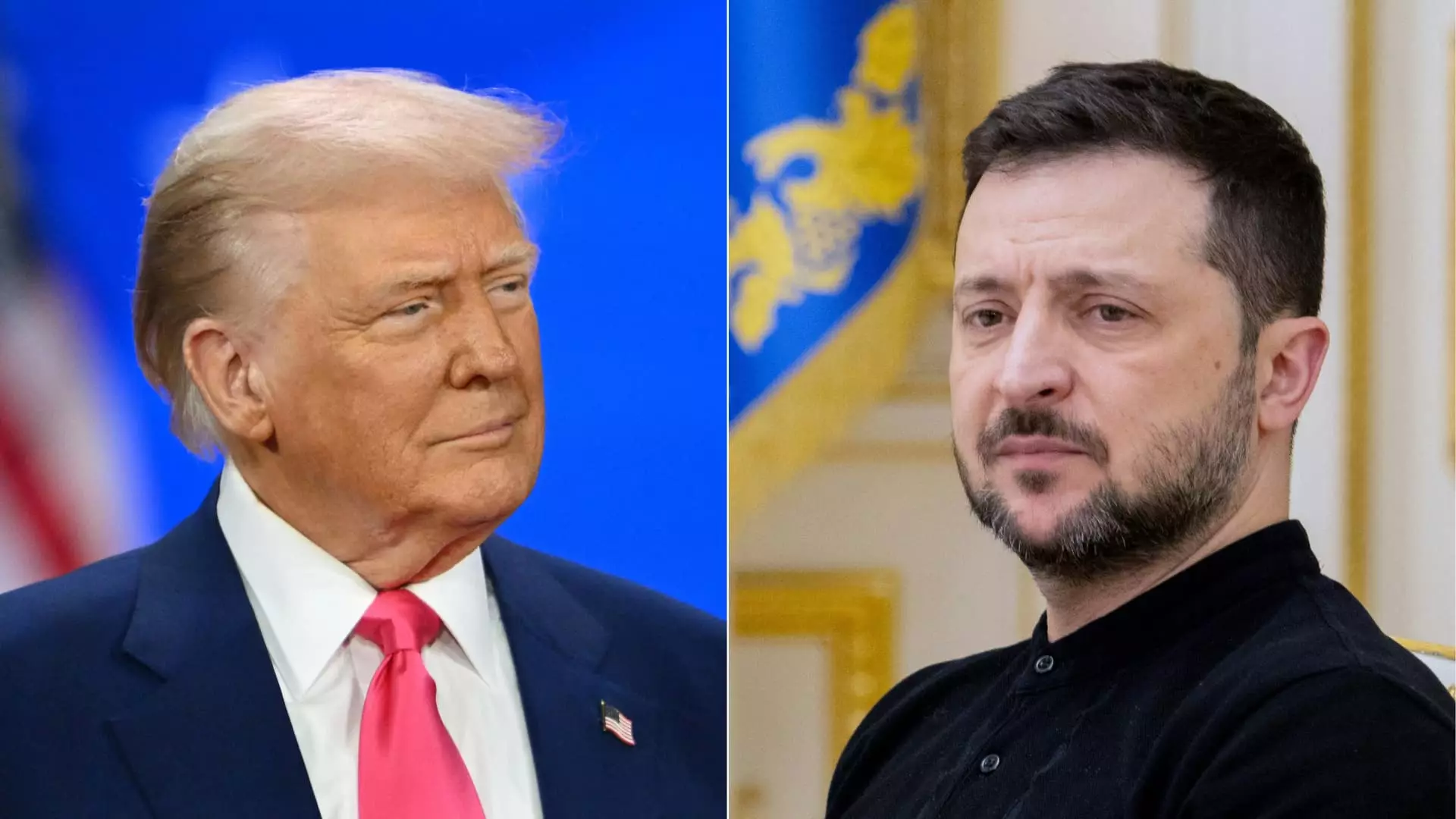In recent political discourse, there has been a disturbing tendency to place the entire burden of resolving the Ukraine conflict squarely on Kyiv’s shoulders. Former President Donald Trump’s assertion that President Zelenskyy could “end the war almost immediately” if he so chooses is not only an oversimplification but a dangerous abdication of responsibility by Western leaders. This rhetoric suggests that Ukraine possesses the power solely within its hands to cease hostilities, ignoring the complex geopolitical realities, national sovereignty, and the legitimate security concerns that underpin Ukraine’s resistance. It perpetuates a narrative where Ukrainian agency is minimized, fostering a dangerous misconception that peace hinges solely on Kyiv’s willingness to capitulate or compromise its sovereignty.
This perspective dangerously dismisses Russia’s aggressive posture and the illegal annexation of Crimea in 2014, along with the broader context of ongoing military hostilities. Such framing trivializes Ukrainian sovereignty, reducing it to a negotiable pawn in a geopolitical game, rather than recognizing it as a nation fighting for its independence. While negotiations are vital, suggesting Ukraine can “end the war” at will, without considering the prerequisites for genuine peace, strips away the nuance essential for responsible diplomacy.
Imperial Demands Cloaked in Diplomacy
The discourse surrounding NATO expansion and Russia’s demands reflects a fundamental misunderstanding of the principles governing international security and sovereignty. Moscow’s insistence that Ukraine must forgo NATO membership and recognize Crimea’s annexation is not just an unreasonable ultimatum but also a blatant attempt to redraw post-Cold War borders unilaterally. By framing these demands as “root causes,” critics sometimes overlook the fact that Moscow’s aggressive expansion is a direct challenge to international law and sovereignty, not a legitimate grievance to be placated.
Western leaders, including Trump, have echoed sentiments that seem to justify concessions that threaten the stability of the entire European continent. Giving in to Moscow’s demands—such as halting NATO expansion or recognizing Crimea as Russian territory—would undermine decades of diplomatic progress and encourage further territorial aggrandizement. These concessions risk creating dangerous precedents that weaken the principles of self-determination and sovereignty, setting the stage for future conflicts across Europe.
Negotiating Peace While Endangering Core Alliances
Trump’s calls for Ukraine to make significant territorial concessions—specifically, withdrawing from eastern regions—are alarmingly shortsighted. Such suggestions ignore the strategic importance of Ukraine’s current defensive positions and the dangers of rewarding aggression. Conceding these areas would effectively hand Moscow a victory, emboldening Russia to pursue further territorial ambitions and destabilizing European security. It is naïve to believe that capitulation in one conflict zone can lead to stable peace; history teaches us otherwise.
Furthermore, the idea that Moscow’s proposed ceasefire offers a genuine path to peace is misleading. Reports indicate that the Russian demands are extensive and threaten not only Ukraine’s territorial integrity but also the security architecture of Europe. The threat of NATO’s dissolution, under the guise of “addressing root causes,” effectively plays into a Russian narrative that equates Western presence with existential threats. This is a reckless approach, risking a cycle of concessions that ultimately compromise the core democratic values of sovereignty and self-defense.
The Illusion of Peace Through Appeasement
International leaders must recognize that genuine peace requires a firm stance against violations of sovereignty and territorial integrity. Offering Russia carve-outs or concessions under pressure merely legitimizes aggressive expansionism. Zelenskyy and Ukraine should not be coerced into surrendering key territories or accepting terms that undermine their security for the sake of expediency. While diplomacy remains essential, it should not come at the expense of the principles that underpin international stability.
While some may argue that war should be avoided at all costs, the risk of unchecked aggression grows with every concession made in the hope of “peace.” Instead, a balanced approach—one that supports Ukraine’s right to defend itself while discouraging further Russian expansion—is the only sustainable path forward. Giving Putin’s Russia what it demands under the guise of peace will only perpetuate a cycle of conflict and undermine the international order that has maintained relative stability for decades. True leadership demands not only strategic patience but also the moral clarity to stand firm against aggression, recognizing that peace built on concessions rather than justice is often a fragile illusion.


Leave a Reply